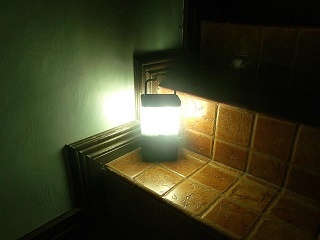From 2GreenEnergy Intern Fabio Porcu: “SALt” Technology

Indeed, access to electricity is distributed unevenly in the world, meaning that it’s time to find new solutions. Among the proposals to illuminate the house with no grid access there is SALt, a lamp that works with water and salt.
SALt is able to light a room eight hours per day with just a cup of salt water, for example from sea water. The idea was born from the minds of three engineers and a designer who want to change the world. Salt water allows this lamp to work smoothly; in fact sea water is a natural substance, not dangerous and not flammable.
The team, led by Aisa Mijeno, wanted to create something cheap, easy to use and reliable for people living in remote regions of the world. The idea was born in the Philippines where the problem of access to electricity is still present.
The energy produced by the lamp can also be used to recharge cell phones, something that’s crucial in an area such as the Philippines, in the event of emergencies caused by typhoons and earthquakes.
SALt is not something magic; it is simply a battery that uses salt water as an electrolyte. The electrodes are composed of two dissimilar metal plates. The generated current is sufficient to power LEDs, recharge cell phone, and perform other low-power tasks. The advantages of this type of battery are:
- duration: a glass of salted water guarantees a lighting of eight hours, while the life of the electrodes is about six months, after that they need to be changed;
- the cost: one of the main objectives of this battery is to reduce the costs of production and maintenance using readily available materials.
Of course this kind of battery has some disadvantages, like the low voltage and the need of frequent maintenance, but I think for this application it can be really useful.

It would be good to know more about the battery.
How much do replacement electrodes cost?
Of what are the electrodes made?
Etc.